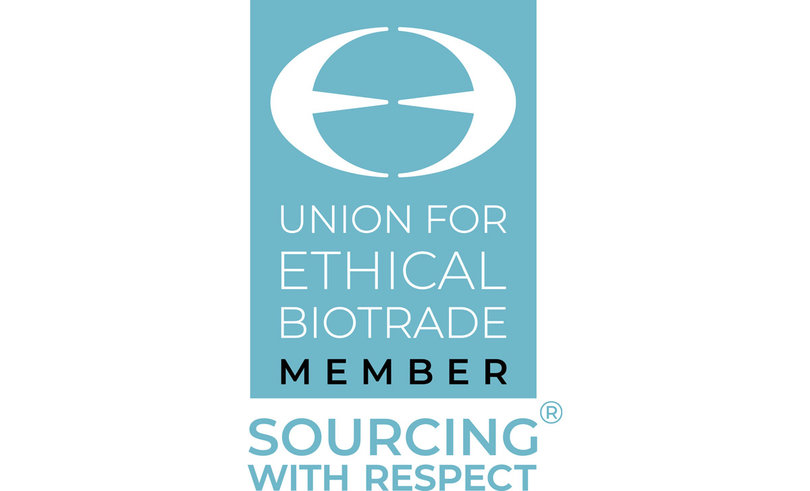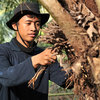A commitment to serve Malgasy communities
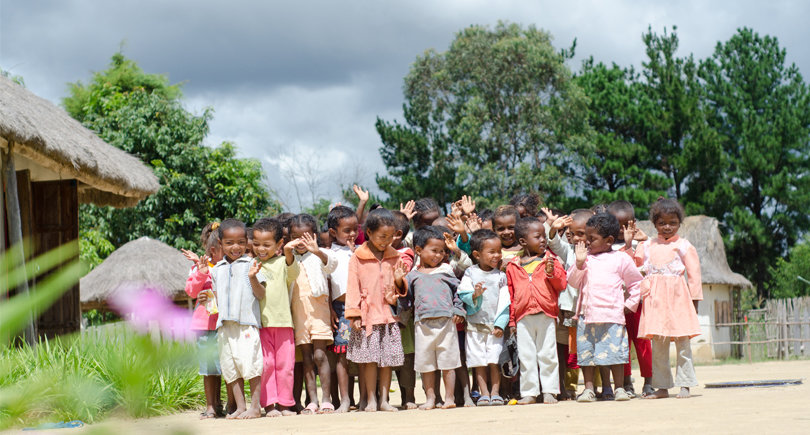
On the Serdex site, Seppic extracts and purifies wesource™ cosmetic and pharmaceutical botanical active ingredients from plants harvested in Madagascar.
Over 40 years of commitment
A pioneer in the implementation of benefit-sharing best practices towards local communities surrounding plant collection for four decades, Serdex has been an active member of the Union for Ethical BioTrade (UEBT) since 2008. Since its creation, respecting traditional know-how, improving the living conditions of local populations, and ensuring that our local suppliers become increasingly competent in terms of social responsibility, by even reaching the plant collection areas, have been at the heart of Serdex’s sustainable development.
During our last membership audit in 2020, 96,5% of UEBT membership obligations were met (membership audit conducted by Ecocert using the UEBT Ethical BioTrade standard). Among the conditions for joining the UEBT, Serdex has given priority to the Centella asiatica supply chain to improve ethical practices.
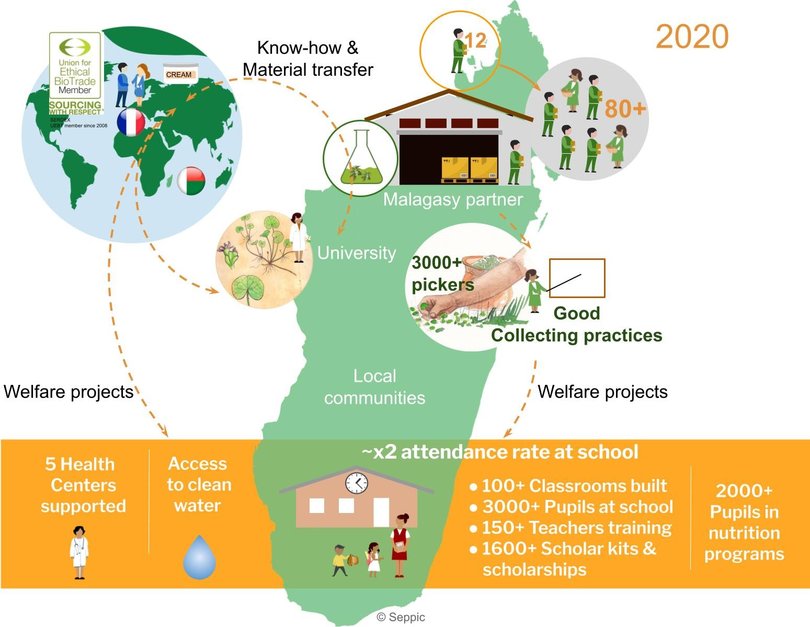
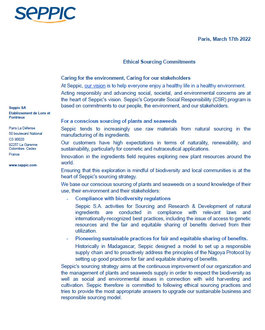
Examples of actions with local communities and partners
In Madagascar today, more than 3,000 pickers benefit from Serdex's supply chain, and local partners ensure quality control and traceability thanks to the transfer of expertise. Serdex and its partners are committed to improving the living conditions of the communities where the harvesters live, particularly by providing infrastructural support for education. With the support of its customers, Serdex contributes to:
- Schooling initiatives: over five classrooms per year have been built on average since 2003, accommodating 2,880 students a year with three school libraries, hundreds of school kits (480 in 2019) distributed to students and six scholarships for middle school to college.
- Schooling initiatives: more than 100 classrooms and libraries have been built since 2003, accommodating more than 3,000 students a year, capacity building training for more than 150 teachers, hundreds of school kits distributed to students and six scholarships for middle school to college. Attendance rate is about twice as high in supported schools (source: internal survey 2018).
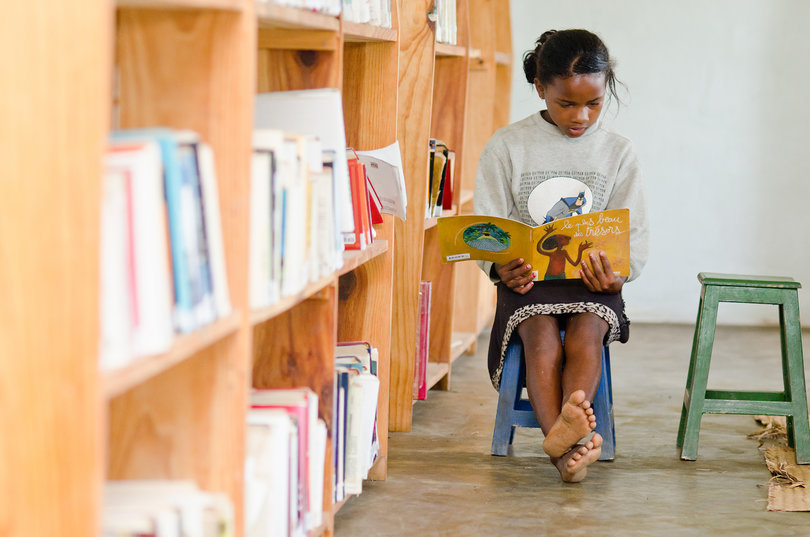
- Nutrition and health initiatives, with participation in nutrition programs (12 ongoing programs), well construction (six in 2019), and providing support to several health centers through the construction of new buildings, the renovation and purchase of medical equipment, and capacity-building training for 20 teachers in six schools.
- Nutrition and health initiatives, with participation in nutrition programs for more than 2000 pupils beneficiaries per year, construction of wells, well constructions, and providing support to 5 health centers through the construction of new buildings, the renovation and purchase of medical equipment
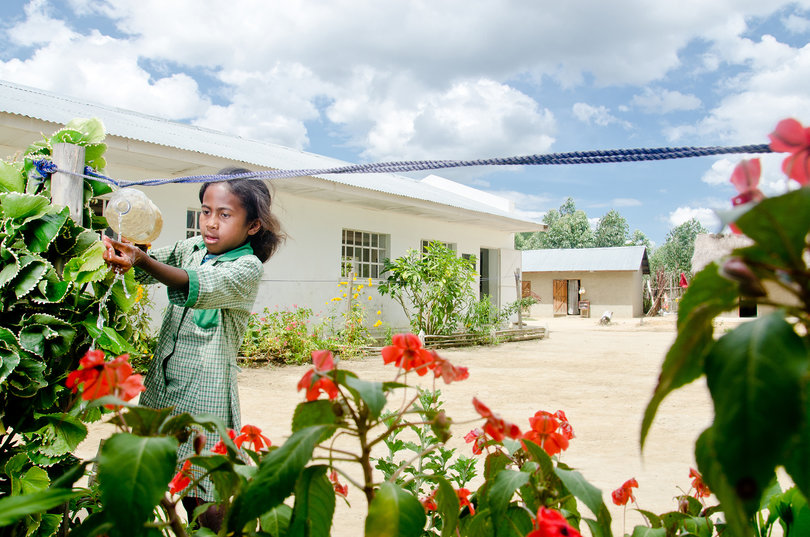
- Skills-building initiatives, with research and production equipment donations, and a contribution to an industrialization project with its main local partner as well as strengthening the traceability, control and verification process of the Centella asiatica supply chain.
For example, in 2020, Seppic supported a school projects in Morarano Gara, Ambohidray et Ankarahara. These projects consist of the allocation of decent buildings (classrooms, wells, latrines, etc.) or educational materials (donation of books) to improve the welcoming and teaching conditions for school children. Parents then become more inclined to send their children to school.
Key figures (achievements 2003-2020)
